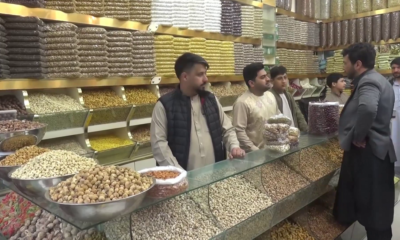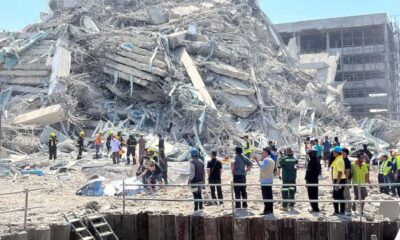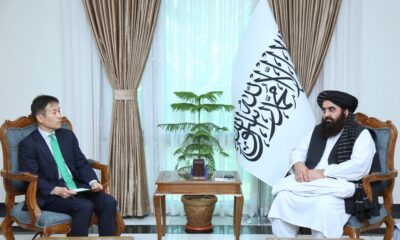Regional
Iran brokering talks to send advanced Russian missiles to Yemen’s Houthis
The Houthis have launched repeated drone and missile strikes on ships in the crucial Red Sea shipping channels since November to show support for Palestinians in the Gaza war with Israel
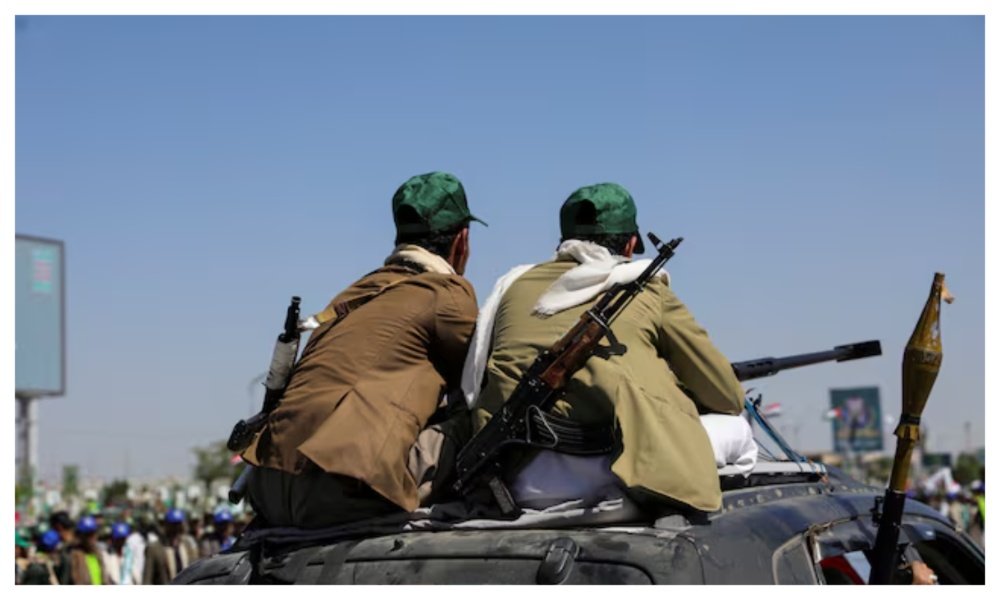
Iran has brokered ongoing secret talks between Russia and Yemen’s Houthi rebels to transfer anti-ship missiles to the militant group, three Western and regional sources said, a development that highlights Tehran’s deepening ties to Moscow.
Seven sources told Reuters that Russia has yet to decide to transfer the Yakhont missiles – also known as P-800 Oniks – which experts said would allow the militant group to more accurately strike commercial vessels in the Red Sea and increase the threat to the U.S. and European warships defending them.
The Wall Street Journal reported in July that Russia was considering sending the missiles. Iran’s role as an intermediary has not been previously reported.
The Houthis have launched repeated drone and missile strikes on ships in the crucial Red Sea shipping channels since November to show support for Palestinians in the Gaza war with Israel.
They have sunk at least two vessels and seized another, disrupting global maritime trade by forcing shipping firms to divert cargos and, according to industry sources, driven up insurance costs for ships plying the Red Sea.
In response, the United States and Britain have struck Houthi positions but have failed to stop the group’s attacks.
Two regional officials aware of the talks said that the Houthis and Russians met in Tehran at least twice this year and that the talks to provide dozens of the missiles, which have a range of about 300 km, were ongoing with further Tehran meetings expected in coming weeks.
Russia has previously supplied the Yakhont missile to Iran-backed Hezbollah.
One of the sources said the talks started under Iranian President Ebrahim Raisi, who died in a helicopter crash in May.
“Russia is negotiating with the Houthis for the transfer of Yakhont supersonic anti-ship missiles,” said a Western intelligence source. “The Iranians are brokering the talks but do not want to have their signature over it.”
Neither Iran’s U.N. mission nor the Russian Defense Ministry responded to requests for comment.
“We have no knowledge of what you have mentioned,” said Mohamed Abdel-Salam, the official spokesman for Yemen’s Houthis.
A senior U.S. official declined to name the specific systems that could be transferred but confirmed that Russia has been discussing supplying missiles to the Houthis, calling the development “very worrisome.”
A U.S. Defense Department official said any efforts to bolster the Houthis’ capabilities would “undermine the shared international interest in global freedom of navigation and stability in the Red Sea and broader Middle East.”
Russia-Iran Links
Russia and Iran have been nurturing closer military ties amid Russia’s war in Ukraine. Tehran has allegedly transferred ballistic missiles to Moscow for use against Ukraine, the United States said earlier this month.
One motivation for Moscow to arm the Houthis, three sources said, is the possibility that Western states could decide to allow Ukraine to use their weapons to strike farther into Russian territory.
The senior U.S. official said the Russia-Houthi talks “seem to be related to our posture in Ukraine and what we’re willing or not willing to do” regarding Kyiv’s requests for the lifting of restrictions on its use of long-range U.S.-supplied weapons to strike targets deep inside Russia.
Russian President Vladimir Putin warned in June that Moscow could send advanced long-range weapons – similar to those the United States and its allies give Ukraine – to the West’s adversaries around the world.
The Yakhont is considered one of the world’s most advanced anti-ship missiles, designed to skim the sea’s surface to avoid detection at more than twice the speed of sound, making it difficult to intercept.
Regional
Powerful quake in Southeast Asia kills several, Myanmar declares state of emergency
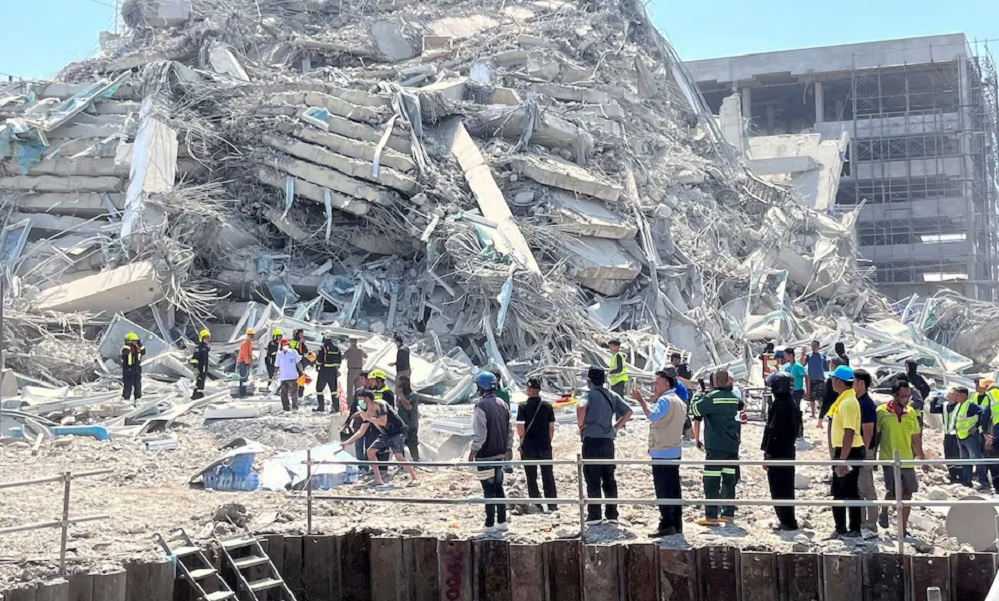
A powerful earthquake rocked Southeast Asia on Friday, killing several people, bringing down a skyscraper under construction in Bangkok and toppling buildings in neighbouring Myanmar, where the ruling junta declared a state of emergency in some areas.
At least three people were killed in the town of Taungoo in Myanmar when a mosque partially collapsed, witnesses said, while local media reported that at least two people died and 20 were injured after a hotel collapsed in Aung Ban, Reuters reported.
In Thailand, at least one person was killed and dozens of workers were rescued from under the rubble of the skyscraper that had been under construction in Bangkok, Thailand’s National Institute of Emergency Medicine said.
Bangkok’s city authorities declared the capital a disaster-stricken area, saying they needed to assess and monitor damaged areas, and assist people who might still be at risk.
In Bangkok, people ran out onto the streets in panic, many of them hotel guests in bathrobes and swimming costumes as water cascaded down from an elevated pool at a luxury hotel, witnesses said.
The United States Geological Survey (USGS) said the quake, which struck at lunchtime, was of 7.7 magnitude and at a depth of 10 km (6.2 miles). It was followed by a powerful aftershock.
The epicentre was about 17.2 km from the Myanmar city of Mandalay, which has a population of about 1.5 million.
Myanmar’s ruling military declared a state of emergency in multiple regions.
“The state will make inquiries on the situation quickly and conduct rescue operations along with providing humanitarian aid,” it said on the Telegram messaging app.
Mandalay is Myanmar’s ancient royal capital and at the centre of the country’s Buddhist heartland.
Social media posts showed collapsed buildings and debris strewn across streets in the city. Reuters could not immediately verify the posts.
One witness in the city told Reuters: “We all ran out of the house as everything started shaking. I witnessed a five-storey building collapse in front of my eyes. Everyone in my town is out on the road and no one dares to go back inside buildings.”
Another witness in the city, Htet Naing Oo, told Reuters that a tea shop had collapsed with several people trapped inside. “We couldn’t go in,” she said. “The situation is very bad.”
At least three people died after a mosque in Taungoo partially collapsed, two eyewitnesses told Reuters.
“We were saying prayers when the shaking started… Three died on the spot,” said one of two people who spoke to Reuters.
Local media reported a hotel in Aung Ban, in Shan state, crumbled into rubble, with one outlet, the Democratic Voice of Burma, reporting two people had died and 20 were trapped.
Video and images posted by Myanmar Now showed a roof cratered at a market in the capital, Naypyitaw.
In Mandalay, the outlet’s images showed a clock tower had collapsed and part of the wall by Mandalay Palace was in ruins.
China’s Xinhua news agency said strong tremors were felt in southwestern Yunnan province, which borders Myanmar, but there were no reports of casualties.
Witnesses contacted in Yangon, Myanmar’s largest city, said many people ran out of buildings.
OFFICE TOWER SHAKES IN BANGKOK
One office tower in downtown Bangkok swayed from side to side for at least two minutes, with doors and windows creaking loudly, witnesses said.
Hundreds of employees filed out via emergency stairs as some shocked and panicked workers froze. Loud shrieks could be heard as the building continued to sway.
Outside, hundreds gathered in the afternoon sun, while staff with medical kits found office chairs for the elderly and people in shock.
China’s Xinhua news agency said strong tremors were felt in southwestern Yunnan province, which borders Myanmar, but there were no reports of casualties.
Regional
Iran ready for indirect talks with US, Khamenei aide says
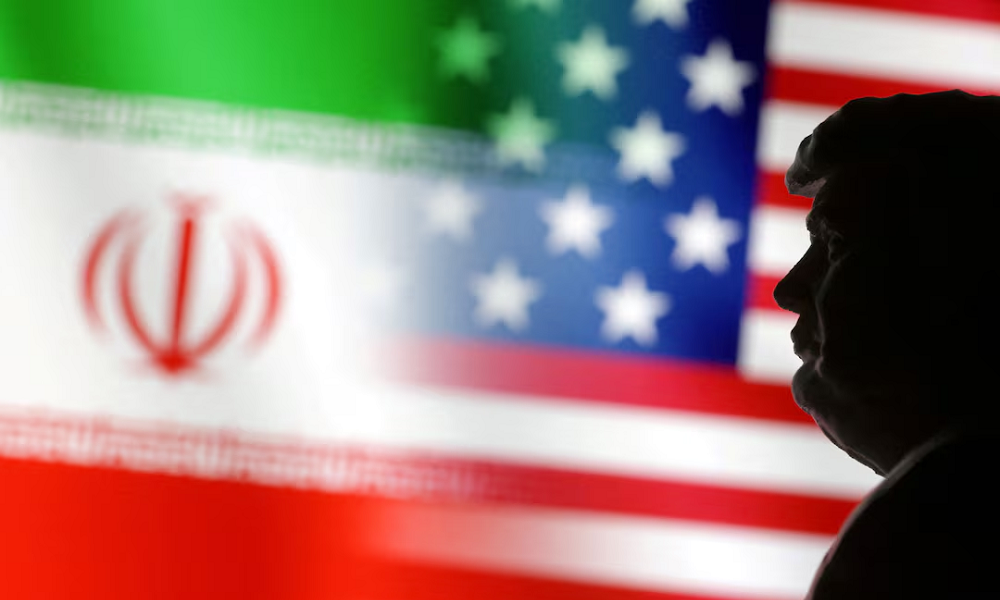
Kamal Kharrazi, an adviser to Iran’s supreme leader, said on Thursday Tehran has not closed all doors to resolve its disputes with the United States and is ready for indirect negotiations with Washington.
Tehran has so far rebuffed U.S. President Donald Trump’s warning it to make a deal or face military consequences. Supreme Leader Ayatollah Ali Khamenei called the message deceptive and Foreign Minister Abbas Araqchi said talks are impossible unless Washington changes its “maximum pressure” policy.
“The Islamic Republic has not closed all doors. It is ready for indirect negotiations with the United States in order to evaluate the other party, state its own conditions and make the appropriate decision,” Kharrazi said, according to the semi-official Iranian Students News Agency.
Iran is meant to soon reply to Trump’s letter, with Araqchi saying last week that Tehran would take into consideration both Trump’s threat and opportunities in its response.
In his first 2017-21 term, Trump withdrew the U.S. from a 2015 deal between Iran and world powers that placed strict limits on Tehran’s disputed nuclear activities in exchange for sanctions relief.
After Trump pulled out in 2018 and reimposed sweeping U.S. sanctions, the Islamic Republic breached and has since far surpassed those limits in its escalating programme of uranium enrichment.
Western powers accuse Iran of having an clandestine agenda to develop nuclear weapons capability by enriching uranium to a high level of fissile purity, above what they say is justifiable for a civilian atomic energy programme.
(Reuters)
Regional
Pakistan, China in talks about security for Chinese nationals
Chinese nationals have been targeted by separatist militants who believe Beijing is helping Pakistan exploit minerals in Balochistan
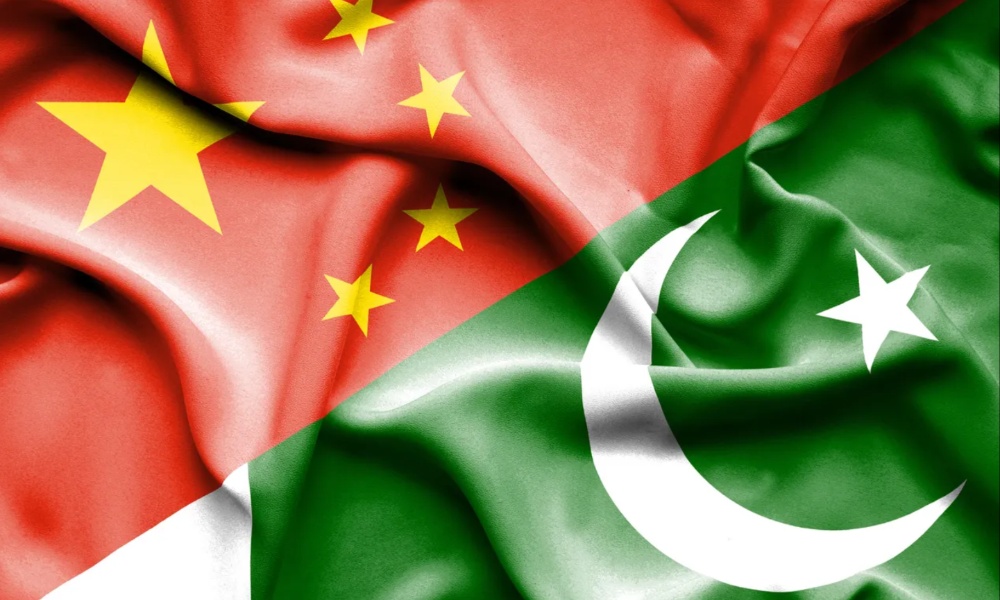
Pakistan and China’s discussions about security measures to protect Chinese nationals working in the South Asian country are a work in progress, Islamabad’s ambassador to Beijing said on Wednesday.
Chinese nationals have been in the crosshairs of separatist militants who believe Beijing is helping Pakistan exploit minerals in the underdeveloped southwestern province of Balochistan, where China has a strategic port and mining interests, Reuters reported.
It is Pakistan’s “national responsibility” and the country is “doing everything possible”, Ambassador Khalil Hashmi told reporters at the sidelines of the Boao Forum in China’s Hainan province.
“I think our two countries work very closely in terms of information sharing, in terms of developing the standard operating procedures” to ensure Chinese nationals working in Pakistan are safe, he said.
“We keep our Chinese friends informed of the steps that we are taking, so it’s a work in progress.”
Beijing has been pushing Pakistan to allow its own security staff to provide protection to thousands of Chinese citizens working there, frustrated by the string of attacks on its citizens.
The push came after a bombing at the Karachi airport last October killed two Chinese engineers who were returning there to work at a power plant.
Hashmi said those talks are ongoing, with a high degree of trust between both countries.
“It’s a complex security environment,” he said, “We have the capability to resolve, to counter and combat and defeat these terrorist forces.”
-

 International Sports4 days ago
International Sports4 days agoIPL 2025: Sunrisers on a batting rampage; triumph over Rajasthan Royals
-

 Latest News4 days ago
Latest News4 days agoEU says girls’ education crucial for Afghanistan’s long-term prosperity
-

 Sport4 days ago
Sport4 days agoACB names Afghanistan A squad for tri-nation series
-
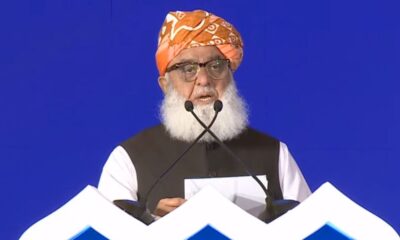
 Latest News5 days ago
Latest News5 days agoPakistan’s mistakes played significant role in rise of terrorism: Maulana Fazl-ur-Rehman
-
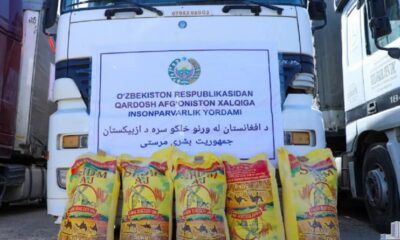
 Latest News4 days ago
Latest News4 days agoUzbekistan sends essential food aid to Afghanistan
-

 International Sports3 days ago
International Sports3 days agoIPL 2025: Last over drama; Ashutosh Sharma clinches win for Delhi Capitals
-

 Sport3 days ago
Sport3 days agoAfghanistan eliminated from Asian Beach Soccer Championship
-
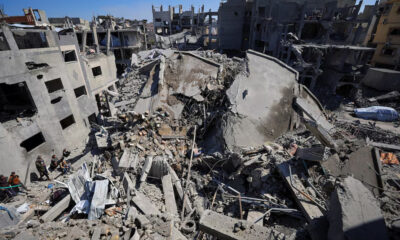
 Regional3 days ago
Regional3 days agoEgypt makes new proposal to restore Gaza truce as Israeli strikes kill 65


